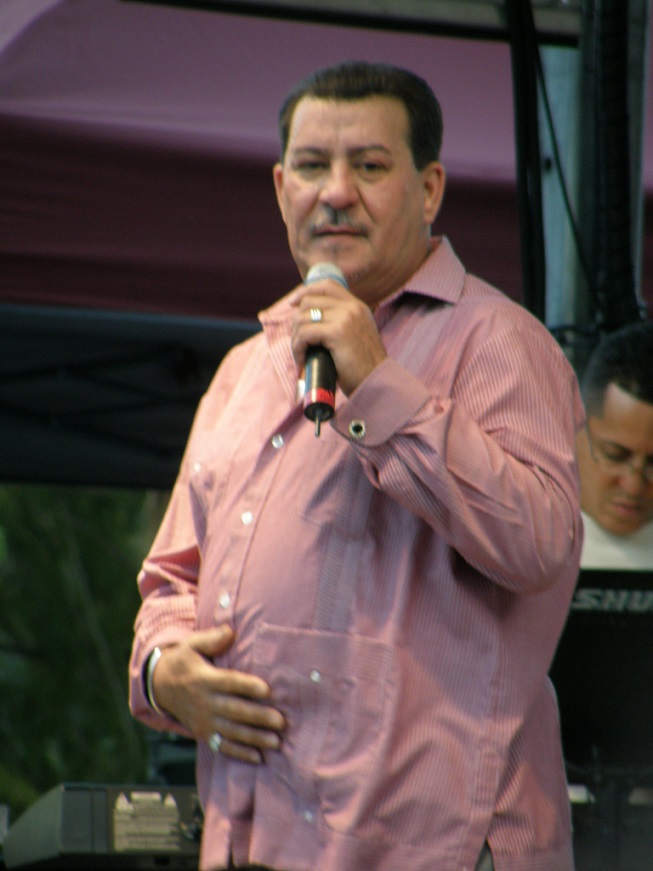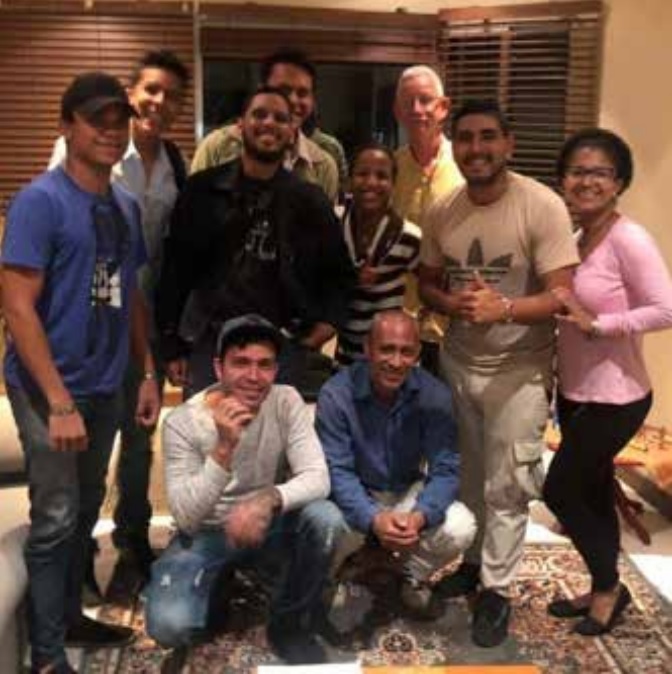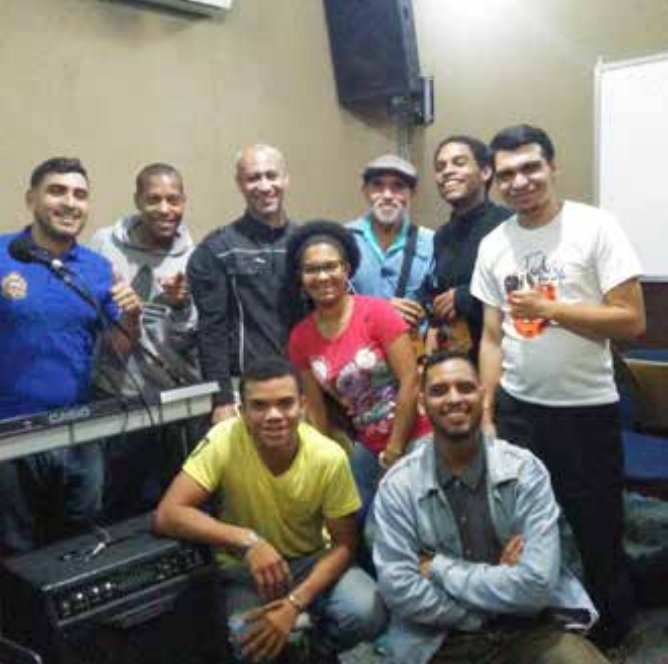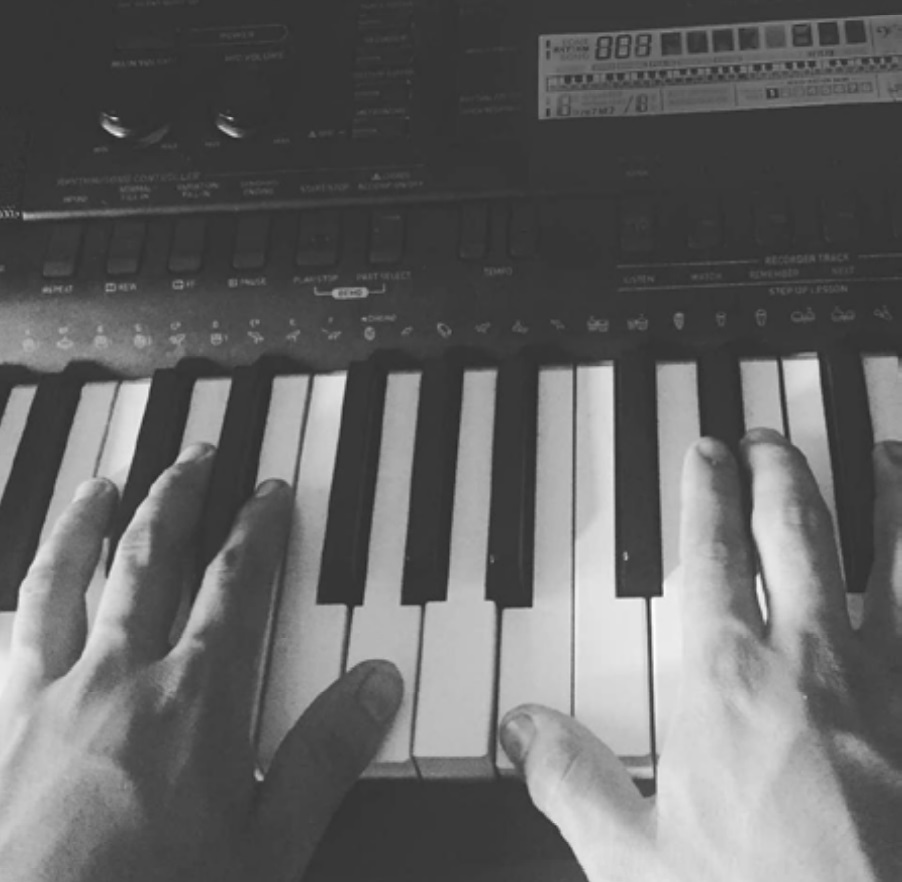Search Results for: Son
Tito Rojas
Latino America/ Puerto Rico/ Humacoa
Tito Rojas, The Salsa Rooster
Julio César Rojas López better known as Tito Rojas was born in Humacao, Puerto Rico, June 14, 1955, is a Puerto Rican salsa singer.
Tito Rojas grew up and was educated in the city of Humacao, located on the eastern coast of Puerto Rico, where he attended primary and secondary school. From an early age Rojas enjoyed singing salsa to his family and friends.
In 1974 he had an audition with Pedro Conga and his International Orchestra. He sang the song ««Olvídate de mí»» accompanied by the orchestra and Pedro Conga hired him as a singer.

Some time later he left the band to join the “Borincuba Set”, led by Justo Betancourt, as lead vocalist. With this orchestra he participated in the recording of “Con amor” (“With Love”), becoming a success in 1978.
After a while, Rojas formed his own short-lived band, Conjunto Boricano. Between 1987 and 1988 he sang, with good success, salsa versions of “Noche de boda” and “Quiéreme tal como soy” together with the “Puerto Rican Power”.
In 1990, Rojas recorded the successful lp Sensual as a soloist for the “Musical Productions” label. Tito Rojas from 1992, A Mi Estilo” from 1993 and in 1995 he recorded in his own right, which he placed on Billboard’s Latin hits list.
He gained recognition from the recording industry by winning the double Platinum Album, the Paoli Award for “Best Salsa Artist of the Year” and the “ACE” award.
In 1996, Rojas had other successes with Humildemente and Pa’l pueblo, as well as 20º Aniversario, Alegrías y penas and Navidad Con Tito Rojas in 1999 and continued in the following years with the albums in 2000 Rompiendo noche, 2001 Auténticamente en vivo and Quiero. arriving home in 2003 Canta el gallo and Perseverancia 2004 The same as always, Fighting Hard and Traditional, 2005 Slate and new account, 2006 Better Than Always, 2007 No Comments and Successes and More

Tito Rojas is currently performing concerts and tours around the world.
North America – July 2019
Latin America – July 2019
Orchestra “Real Expression”
Latin America / Venezuela / Caracas
Orchestra “Real Expression”. Relay youth in Afro-Caribbean music
The “Real Expression” Orchestra was born under the initiative of a group of friends who converged during the 90’s as part of their free time and to liven up their family parties.
Empirical musicians moved by the passion for the salsa genre and their musical preferences chose a series of songs to inspire their repertoire of “hard sauce” paying homage to orchestras such as: Los Satélites, Fruko y sus Tesos, Dimensión Latina, Roberto Blades, among others.

Relaunching
The “Real Expression” Orchestra in 2016 had an unexpected loss. Its founder Oswaldo García and pianist of the group, exercising his role as a GNB official, lost his life in a confrontation.
This moment marked a silence in the Royal Expression Orchestra, which after the physical disappearance of Oswaldo, could not find a path to musical growth and there was no longer reason to celebrate.
After a year, his son Wladimir A. García, who learned the magic of the piano from his father, decides again to summon these friends of his father to continue the legacy that was Oswaldo’s passion in life.
During the year 2018, the “homemade” rehearsals and the desire to consolidate the group continued and in December of that year Wladimir Alexander formally decided to start piano lessons with the teacher Alberto Crespo, a Venezuelan pianist recognized in the salsa scene for his participation. in Bands such as Bailatino, and professionalize their innate skills in order to take on the challenge of Musical Direction of the Orchestra, under a concept of varied salsa repertoire and coupling talents of different ages in order to capture audiences of all ages.
With this impetus and desire, “Orquesta Real Expression” was born with a group of musicians of all ages and periods, a fresh and original repertoire with a “street tumbao”, extolling what is born at night in the Caracas parish “23 de January” cradle of salsa par excellence and in homage to all “street and guataca” dancers.

Musicians
After the call, many musicians were encouraged to participate, including Gilberto Gil (tumbadoras) who has been supporting Wladimir Alexander since he took over the orchestra, we consider him “the brother of the house”.
There is also Gonzalo Ribas (singer) of the old school with an original soneo and a musician by vocation formally dedicated to the business of selling spare parts. In the voice is also part of this project Jeanmicet Canónico, singer with a career in traditional Venezuelan music.
Jeanmicet is currently part of the “Francisco Pacheco y su Pueblo” Project and his son, also renowned percussionist Roland Orozco, decided to join the percussion base for “Real Expression” with Luis Urbina.
On bass we are accompanied by “Yimmito León” from the family of the great Oscar D’ León, son of Yimmy Leon. The sax is represented by Javier José Torres Perez (saxophonist and flutist).
Following the line of brass Meyderson Rada (trumpet) who also belongs to the project of Francisco Pacheco y su Pueblo, and as arranger and bass Premmlim Villamizar of the new generation of, under the direction of Wladimir Alexander singer and piano.

Repertoire
The repertoire includes songs covered by orchestras such as Los Satélites, Grupo Canela de Colombia, Spanish Harlem, Hildemaro, Eddy Santiago, Eddie Palmieri, Oscar D’ León, among others.
Real Expression Orchestra. Musical Direction: Wladimir Alexander Garcia. Phone (0414)3175583. email: [email protected] Instagram: orchestrarealexpression / twitter: @ExpressionReal / Facebook: Real Expression Orchestra.
Under the production of: La Negrix Salsera
Email: [email protected]. Instagram: Yohelia Acosta / Facebook: Yohelia Acosta.













